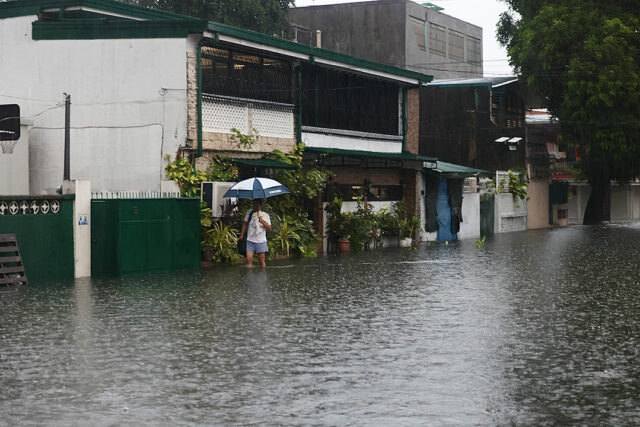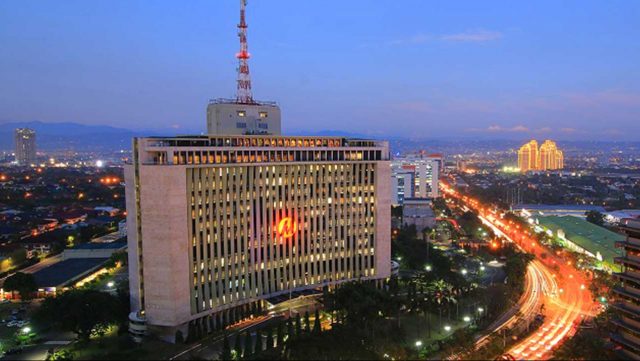By Aubrey Rose A. Inosante, Reporter
INFORMATION TECHNOLOGY and business process management companies as well as traditional offices are expected to pick up the slack as Philippine offshore gaming operators (POGOs) are set to vacate offices around the country, real estate consultants said.
Colliers Philippines on Wednesday said the POGOs’ office footprint in Metro Manila has already gone down to 489,000 square meters (sq.m.) in the first half, compared with the 1.3 million sq.m. office spaces occupied by POGOs in 2019.
“It is still the traditional office occupiers and the BPO (business process outsourcing) occupiers that are still propping up the office market,” Colliers Associate Director for Office Services Kevin R. Jara said during a briefing on Wednesday.
Of the 387,000 sq.m. transactions recorded in the first half of the year, traditional offices accounted for 56%, while BPO firms accounted for 26% and POGOs made up 16%.
Among the top five developers, which control 33% of Metro Manila office stock, their POGO exposure is limited to less than 5% of their portfolio.
Mr. Jara said the Bay Area will likely see a rise in vacancy rates after POGOs are shuttered.
Last week, President Ferdinand R. Marcos, Jr. ordered a total ban on all POGOs due to its ties to illicit activities such as financial scams, money laundering, prostitution and human trafficking.
“Bay Area vacancy may increase to a maximum of 51% if the POGOs exit this market this year and in other areas such as in Makati, we see that vacancy rates may rise to 43% if that industry indeed exits the markets this year,” he said.
Mr. Jara said other areas in Metro Manila are unlikely to be affected by the POGO exit. For instance, POGOs were not allowed to operate in Fort Bonifacio.
“Overall, we see that the full ban may increase Metro overall vacancy rates to 22% by yearend,” he said. This is higher than Colliers’ original forecast of 19.1% before the POGO ban was announced.
Based on Colliers’ conservative estimates and partial reduction of POGO footprint in Manila, the market may still end up at a positive net take-up of 163,000 sq.m.
“In the worst-case scenario, it would be a negative 154,000 square meters of net take-up for 2024. However, we see vacancy rates start to taper already by 2025 and in 2026,” he said.
Colliers said it projected an office demand of 480,000 sq.m. for the next two years based on the assumption that there will be no replacement for POGOs.
“For landlords, especially for those with POGO tenants, you may consider some strategic moves to re-market the spaces to new tenants. So those include proactively refurbishing the spaces suitable for traditional and BPO occupiers,” he said, noting that POGO office layouts are different from BPOs.
Meanwhile, JLL Philippines Head of Research and Strategic Consulting Jan-Loven C. de los Reyes said the firm expects the office sector to move forward or focus more on BPOs since the industry has steady demand for office space.
JLL reported leasing volumes rose 16.9% to 383,319 sq.m. for the first half of 2024. BPOs accounted for 39.9% of these transactions, followed by traditional offices at 34.9% and 25.2% for POGOs, which are now known as internet gaming licensees.
Mr. Reyes said the corporate and traditional occupiers’ transactions were supported by substantial take-up from government agencies.
He said the effect of the POGO ban on the office vacancy levels “is not going to be sizeable” given that the volume of POGO spaces is not as significant as before because of the pandemic.
“But maybe at the city level, you’d see higher vacancies, particularly for Parañaque and Pasay areas because that’s where the POGOs are concentrated,” Mr. Reyes said.
The strong leasing volumes pulled down vacancy levels just right below the 20% threshold at 19.5% for the second quarter of 2024, due to the additional 460,000 sq.m. of office space that will enter the market.
For Leechiu Property Consultants, Inc. Founder and Chief Executive Officer David Leechiu, the BPO sector and traditional offices will be the ones picking up the slack left behind by the POGO sector.
“I’m hoping that the BPO sector will start going back to the office full-time, which they can still do now,” Mr. Leechiu said, noting the “resistance” that persists.
He said that government agencies that would like to upgrade their space should seek out cheap office space in Ortigas Center, Bay Area and Alabang.
“I think office rents have fallen 50% in the last two years. With this new exodus of space, you will probably see rents come down by another 40 [or] 50%,” Mr. Leechiu said.













